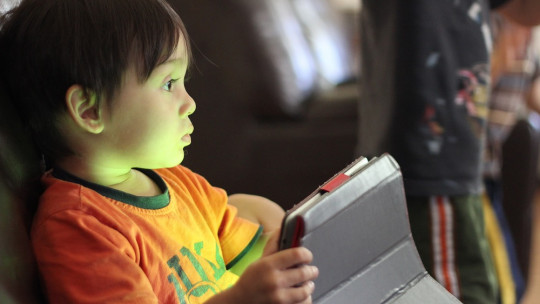
At this point there is no doubt that technologies are an inevitable part of our lives. We all have our own device from which we have access to the internet and, with it, to countless applications and social networks that connect us with the world immediately.
The transition to a technology-based life has been spectacularly rapid. In a matter of a few years, we have built a reality in which screens are necessary for such basic tasks as doing banking procedures, contacting other people, looking for a job, making purchases…
This scenario may be new and overwhelming for those who experienced all these changes already in their adulthood and even in old age. However, those who are children and adolescents today have already been born familiar with the use of technologies. Therefore, living without them is something that they could not contemplate even in the most distant of cases.
Nowadays, young people seem to be hooked on their phones. The age at which they obtain their first mobile device is increasingly younger, so they enter a world full of risks and opportunities without the necessary maturity to be able to manage its use. In this situation, many parents feel overwhelmed and choose to check their children’s cell phones. They know their passwords and do not hesitate to peek into their conversations.
The reality is that when it comes to teenagers and technologies, the ideal will always be to find a balance. In this article we will talk about how to find this balance and answer the question of whether parents should really check their children’s cell phones
Age does matter when using a smartphone
In general terms, experts in the field consider that The recommended minimum age to own your own mobile phone is 16 years old Although each teenager and her situation are unique, having a phone requires a minimum of maturity and responsibility. Before this age, children may not be fully aware of everything involved in using a device. In addition, they are more vulnerable to developing addiction to its use.
Although this is what the experts indicate, the reality is that children are starting to have their own cell phone earlier and earlier. Many parents agree to offer it not so much because they are satisfied, but because of social pressure. The arrival of that moment in which all friends and colleagues already have one is increasingly earlier, in addition to the fact that today not having a mobile phone is perceived as living in a state of isolation or in prehistory itself. Thus, the parents end up giving in, but they do so insecure and fearful of what may happen. Finally, they may end up checking the phone behind their child’s back to clear their doubts.
The importance of educating in responsible use
Beyond the ideal age to start having a mobile phone, the truth is that Many times parents also fail to provide correct education in the responsible use of technologies
Before making the mistake of checking your teenager’s cell phone, it may be advisable to start by providing education about the use of technology. The role of adults should not focus on punishing, prohibiting and limiting. Rather, it should be aimed at offering a guide so that children know exactly what risks there are on the Internet, what guidelines they should follow to use their apps responsibly, and under what conditions they should inform their parents to ask for help. The truth is that Many adults allow their children to have a cell phone without even knowing what social networks they use or who their friends are
Educating children in this direction is a way to protect them. Look the other way and ignoring everything that happens on networks means leaving them alone in the face of quite considerable risks.
What makes you want to check your child’s cell phone?
It is important that, as a father or mother, you ask yourself this question. You should think about what you are trying to achieve by browsing your child’s conversations. Have you observed a change in behavior in him? Do you think he spends the day glued to his cell phone? Just curiosity?
Clarifying this point is essential, since many times the way to answer certain questions is not to spy on your device. Before abruptly invading his privacy, it may be more advisable to ask him if something is wrong or what he uses his phone for.
Communication is key in any type of relationship, especially when we talk about the bond between parents and adolescent children. By talking openly with them it is possible to negotiate, get to know them, understand them and reach satisfactory agreements for both parties. without having to resort to strategies that give rise to tension and mistrust
Although they are minors and as such must have supervision, constituting a reliable figure that they can rely on is preferable to playing spy. Of course, if you are still trying to communicate with your son and notice that he is hiding something important from you, you can occasionally check his cell phone. However, even in these cases it is better that you ask him yourself so that he does not experience that review of the phone as a betrayal behind his back.
In some cases, adolescents turn to abusive use of cell phones because they find an escape route in it. If you think that your child can fit into a situation like this, the ideal is that you try to stimulate and encourage him so that he has a satisfactory life in reality. Do pleasant activities with him, encourage him to hang out with his friends, do sports or other extracurricular activities, etc. When there is boredom and emptiness, technologies generally end up being the most accessible relief. Cultivating other spheres of your child’s life will mean that he does not have to resort to the screen to feel better.
Sometimes, it also happens that adolescents have low self-esteem or problems relating to peers. In these cases, networks help them create a fictitious profile in which their insecurities are diffused and where they can interact more easily with others.
User contract: a way to find consensus and set limits
In some cases, It may be helpful to draft a user contract with the adolescent, which must be signed by parents and child The objective is that this document contains a series of clauses that include the guidelines that the son will have to accept if he wants to be able to use his cell phone. Within the contract you can point out issues such as the time of use or actions that should not be carried out on networks under any circumstances (making purchases without permission, sending intimate photos to other people…).
By establishing the contract, parents can achieve more peace of mind without having to spy on their children’s phone. In addition, this way adolescents know what the limits are and the appropriate way to use their networks.
Added to everything said, the contract is also flexible. This allows the conditions to be modified according to the new needs that arise in the family.
The intensity of control should be proportional to age
As we have been saying, spying on your children’s cell phones is not the best idea unless it is an exceptional situation. However, control and limits are always necessary to educate young people in responsible use of networks.
However, it is important to keep in mind that the intensity of this control must be proportional to age. So, In early adolescence, it may be useful to apply a parental control system or to remove the cell phone in some time zones However, as children grow, it is expected that their desire for autonomy will also become greater. Therefore, parents will have to learn to negotiate and be more flexible.
Conclusions
In this article we have talked about whether parents should check their children’s cell phones. The truth is that this is a question that has been worrying many adults for a few years. Today, most people own a device and networks are part of our daily lives. Today’s teenagers are already born familiar with cell phones and other devices, so many seem to live completely glued to them.
Faced with this situation, many parents make the decision to check their children’s cell phones, have their passwords and read conversations. However, a priori and except in exceptional cases, this is not the best strategy.
Adolescents need supervision, control and limits, but they also require a space of privacy and the certainty that their parents trust them. Therefore, the ideal is to educate about responsible cell phone use and establish clear limits, which can be made firm through a contract agreed upon by both parties.








